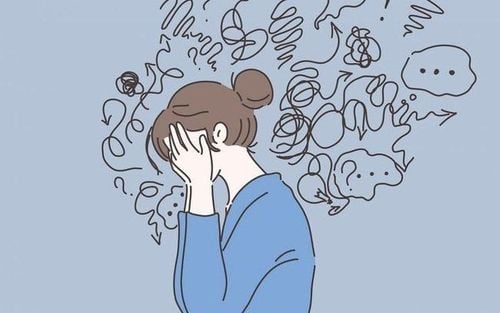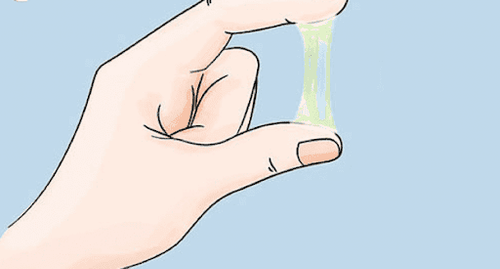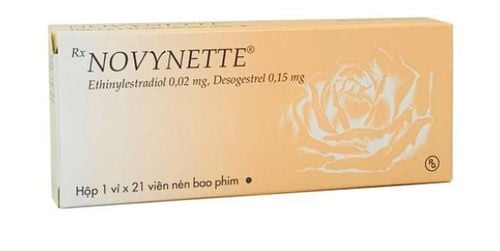Postmenstrual syndrome is still a new term in the medical community. The name derives from a group of psychological and physical symptoms that occur after menstruation.
1. What is postmenstrual syndrome?
Postmenstrual syndrome is a term used to describe symptoms that arise after menstruation ends. They can range from physical symptoms such as headaches to emotional symptoms such as anxiety.
Although postmenstrual syndrome has similar symptoms to premenstrual syndrome (PMS), there are differences between the two. In postmenstrual syndrome, the symptoms always occur after menstruation has ended, but in PMS, they always occur a period of time before menstruation. The psychological manifestations of postmenstrual syndrome are also more intense than PMS.
2. Causes of postmenstrual syndrome
Postmenstrual syndrome can occur due to the following reasons:
- Hormonal imbalance: Increased hormone levels, including estrogen and testosterone, can be the cause of postmenstrual syndrome. Unlike PMS, which is often caused by decreased progesterone levels. However, this increase in hormones occurs during anovulatory cycles (menstrual cycles where no egg is released) and requires further research to confirm.
- Diet : A diet high in sugar and processed foods can increase blood sugar levels, causing the body to be more exposed to oxidative stress.
- Medical conditions : Polycystic ovary syndrome (PCOS), insulin resistance. Insulin is an important factor that can affect the activity of other hormones such as estrogen, progesterone and testosterone.
- Contraceptive implants
3. Symptoms of postmenstrual syndrome
Symptoms of postmenstrual syndrome are divided into two types: physical and mental. Of which, mental symptoms are more common than physical symptoms.
Some common mental manifestations of postmenstrual syndrome include mood swings, anxiety, frequent irritability, anger or tearfulness.
Some severe cases may have depression, difficulty in sleeping, difficulty in concentrating and problems with coordination.
Common physical manifestations of postmenstrual syndrome are pain, mainly pain in the stomach, joints, back and neck, or headaches and pain during sex. Vaginal discomfort may also occur, including dryness, itching or burning.
In addition, you may also have abdominal pain, abdominal pain after menstruation can be a potential sign of another underlying disease such as endometriosis.

4. How long does postmenstrual syndrome last?
Typically, symptoms of postmenstrual syndrome can last for a few days. In some cases, they can last up to 2 weeks after the period ends.
5. What can you do to relieve postmenstrual syndrome?
Measures to relieve postmenstrual syndrome symptoms can be similar to those for PMS. Some suggestions include:
- Try to control stress, get enough sleep, and exercise regularly.
- Take time to take better care of yourself by using essential oils and relaxation techniques such as yoga or massage.
- Practice and adhere to a healthy diet. You should limit your salt and caffeine intake, and eat plenty of fruits, vegetables, fish, and whole grains.
- Take supplements. Iron levels naturally decrease after your period, and even a slight decrease can cause body aches, fatigue, and irritability. Therefore, you should check your iron levels and increase your iron intake with a daily iron supplement or through iron-rich foods such as red meat, shellfish, and beans. In addition, B-complex vitamins and vitamin E help reduce fatigue and bloating. Magnesium found in foods such as dark chocolate, nuts, seeds, and avocados can help treat psychological symptoms.
6. Treatment of postmenstrual syndrome
There is currently no specific treatment for postmenstrual syndrome. There are only measures to relieve specific symptoms, such as:
- Cognitive behavioral therapy
- Antidepressants
- Hormonal contraceptives that prevent ovulation can also help control mood and reduce pain.
A doctor will investigate whether an underlying condition, such as PCOS, may be causing postmenstrual symptoms.
In addition, doctors may indicate tests if they suspect a medical condition is causing the symptoms of postmenstrual syndrome. Doctors may recommend medications and other therapies based on this diagnosis.
To arrange an appointment, please call HOTLINE or make your reservation directly HERE. You may also download the MyVinmec app to schedule appointments faster and manage your reservations more conveniently.
Reference source: healthline.com












